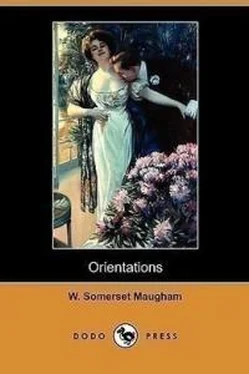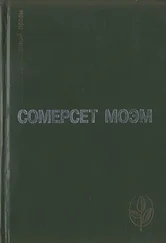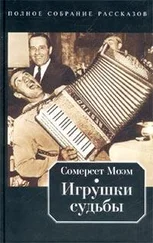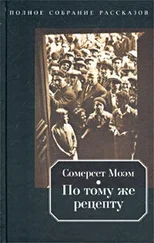Уильям Моэм - Orientations
Здесь есть возможность читать онлайн «Уильям Моэм - Orientations» весь текст электронной книги совершенно бесплатно (целиком полную версию без сокращений). В некоторых случаях можно слушать аудио, скачать через торрент в формате fb2 и присутствует краткое содержание. Год выпуска: 2014, Издательство: epubBooks Classics, Жанр: Классическая проза, на английском языке. Описание произведения, (предисловие) а так же отзывы посетителей доступны на портале библиотеки ЛибКат.
- Название:Orientations
- Автор:
- Издательство:epubBooks Classics
- Жанр:
- Год:2014
- ISBN:нет данных
- Рейтинг книги:5 / 5. Голосов: 1
-
Избранное:Добавить в избранное
- Отзывы:
-
Ваша оценка:
- 100
- 1
- 2
- 3
- 4
- 5
Orientations: краткое содержание, описание и аннотация
Предлагаем к чтению аннотацию, описание, краткое содержание или предисловие (зависит от того, что написал сам автор книги «Orientations»). Если вы не нашли необходимую информацию о книге — напишите в комментариях, мы постараемся отыскать её.
Orientations — читать онлайн бесплатно полную книгу (весь текст) целиком
Ниже представлен текст книги, разбитый по страницам. Система сохранения места последней прочитанной страницы, позволяет с удобством читать онлайн бесплатно книгу «Orientations», без необходимости каждый раз заново искать на чём Вы остановились. Поставьте закладку, и сможете в любой момент перейти на страницу, на которой закончили чтение.
Интервал:
Закладка:
'Faith thou hadst not—I showed Myself to thee in flesh and blood, I moved My head; thou didst not believe thine own eyes.' …
VII
Next day, at vespers, Jasper anxiously fixed his gaze on the stained–glass window—again a glow came from it, and as he moved the head seemed to incline itself; but now Jasper saw it was only the sun shining through the window—only the sun! Then the heaviness descended into the deepest parts of Jasper's soul, and he despaired.
The night came and Jasper returned to his cell…. He leant against the door, looking out through the little window, but he could only see the darkness. And he likened it to the darkness in his own soul.
'What shall I do?' he groaned.
He could not tell the monks that it was not a miracle he had seen; he could not tell them that he had lost faith again…. And then his thoughts wandering to the future,—
'Must I remain all my life in this cold monastery? If there is no God, if I have but one life, what is the good of it? Why cannot I enjoy my short existence as other men? Am not I young—am not I of the same flesh and blood as they?'
Vague recollections came to him of those new lands beyond the ocean, those lands of sunshine and sweet odours. His mind became filled with a vision of broad rivers, running slow and cool, overshadowed by strange, luxuriant trees. And all was a wealth of beautiful colour.
'Oh, I cannot stay!' he cried; 'I cannot stay!'
And it was a land of loving–kindness, a land of soft–eyed, gentle women.
'I cannot stay! I cannot stay!'
The desire to go forth was overwhelming, the walls of his cell seemed drawing together to crush him; he must be free. Oh, for life! life! He started up, not seeing the madness of his adventure; he did not think of the snow–covered desert, the night, the distance from a town. He saw before him the glorious sunshine of a new life, and he went towards it like a blind man, with outstretched arms.
Everyone was asleep in the monastery. He crept out of his cell and silently opened the door of the porter's lodge; the porter was sleeping heavily. Jasper took the keys and unlocked the gate. He was free. He took no notice of the keen wind blowing across the desert; he hurried down the hill, slipping on the frozen snow…. Suddenly he stopped; he had caught sight of the great crucifix which stood by the wayside at the bottom of the hill. Then the madness of it all occurred to him. Wherever he went he would find the crucifix, even beyond the sea, and nowhere would he be able to forget his God. Always the recollection, always the doubt, and he would never have rest till he was in the grave. He went close to it and looked up; it was one of those strange Spanish crucifixes—a wooden image with long, thin arms and legs and protruding ribs, with real hair hanging over the shoulders, and a true crown of thorns placed on the head; the ends of the tattered cloth fastened about the loins fluttered in the wind. In the night the lifelikeness was almost ghastly; it might have been a real man that hung there, with great nails through his feet. The common people paid superstitious reverence to it, and Jasper had often heard the peasants tell of the consolations they had received.
Why should not he too receive consolation? Was his soul not as worth saving as theirs? A last spark of hope filled him, and he lifted himself up on tip–toe to touch the feet.
'Oh, Christ, come down to me! tell me whether Thou art indeed a God. Oh, Christ, help me!'
But the words lost themselves in the wind and night…. Then a great rage seized him that he alone should receive no comfort. He clenched his fists and beat passionately against the cross.
'Oh, you are a cruel God! I hate you, I hate you!'
If he could have reached it he would have torn the image down, and beat it as he had been beaten. In his impotent rage he shrieked out curses upon it—he blasphemed.
But his strength spent itself and he sank to the foot of the cross, bursting into tears. In his self–pity he thought his heart was broken. Lifting himself to his knees, he clasped the wood with his hands and looked up for the last time at the dead face of Christ.
It was the end…. A strange peace came over him as the anguish of his mind fell away before the cold. His hands and his feet were senseless, he felt his heart turning to ice—and he felt nothing.
In a little while the snow began to fall, lightly covering his shoulders. Brother Jasper knew the secret of death at last.
VIII
The day broke slowly, dim and grey. There was a hurried knocking at the porter's door, a peasant with white and startled face said that a brother was kneeling at the great cross in the snow, and would not speak.
The monks sallied forth anxiously, and came to the silent figure, clasping the cross in supplication.
'Brother Jasper!'
The prior touched his hands; they were as cold as ice.
'He is dead!'
The villagers crowded round in astonishment, whispering to one another. The monks tried to move him, but his hands, frozen to the cross, prevented them.
'He died in prayer—he was a saint!'
But a woman with a paralysed arm came near him, and in her curiosity touched his ragged cowl…. Suddenly she felt a warmth pass through her, and the dead arm began to tingle. She cried out in astonishment, and as the people turned to look she moved the fingers.
'He has restored my arm,' she said. 'Look!'
'A miracle!' they cried out. 'A miracle! He is a saint!'
The news spread like fire; and soon they brought a youth lying on a bed, wasted by a mysterious illness, so thin that the bones protruding had formed angry sores on the skin. They touched him with the hem of the monk's garment, and immediately he roused himself.
'I am whole; give me to eat!'
A murmur of wonder passed through the crowd. The monks sank to their knees and prayed.
At last they lifted up the dead monk and bore him to the church. But people all round the country crowded to see him; the sick and the paralysed came from afar, and often went away sound as when they were born.
They buried him at last, but still to his tomb they came from all sides, rich and poor; and the wretched monk, who had not faith to cure the disease of his own mind, cured the diseases of those who had faith in him.
The Choice of Amyntas
I
Often enough the lover of cities tires of their unceasing noise; the din of the traffic buzzes perpetually in his ears, and even in the silences of night he hears the footfalls on the pavement, the dull stamping of horses, the screeching of wheels; the fog chokes up the lungs so that he cannot breathe; he sees no longer any charms in the tall chimneys of the factory and the heavy smoke winding in curves against the leaden sky; then he flies to countries where the greenness is like cold spring water, where he can hear the budding of the trees and the stars tell him fantastic things, the silence is full of mysterious new emotions. And so the writer sometimes grows weary to death of the life he sees, and he presses his hands before his eyes, that he may hide from him the endless failure in the endless quest; then he too sets sail for Bohemia by the Sea, and the other countries of the Frankly Impossible, where men are always brave and women ever beautiful; there the tears of the morning are followed by laughter at night, trials are easily surmountable, virtue is always triumphant; there no illusions are lost, and lovers live ever happily in a world without end.
II
Once upon a time, very long ago, when the world was younger and more wicked than it is now, there lived in the West Country a man called Peter the Schoolmaster. But he was very different from ordinary schoolmasters, for he was a scholar and a man of letters; he was consequently very poor. All his life he had pored over old books and musty parchments; but from them he had acquired little wisdom, for one bright spring–time he fell in love with a farmer's daughter—and married her. The farmer's daughter was a buxom wench, and, to the schoolmaster's delight—he had a careless, charming soul—she presented him in course of time with a round dozen of sturdy children. Peter compared himself with Priam of Troy, with Jacob, with King Solomon of Israel and with Queen Anne of England. Peter wrote a Latin ode to each offspring in turn, which he recited to the assembled multitude when the midwife put into his arms for the first time the new arrival. There was great rejoicing over the birth of every one of the twelve children; but, as was most proper in a land of primogeniture, the chiefest joy was the first–born; and to him Peter wrote an Horatian ode, which was two stanzas longer than the longest Horace ever wrote. Peter vowed that no infant had ever been given the world's greeting in so magnificent a manner; certainly he had never himself surpassed that first essay. As he told the parson, to write twelve odes on paternity, twelve greetings to the new–born soul, is a severe tax even on the most fertile imagination.
Читать дальшеИнтервал:
Закладка:
Похожие книги на «Orientations»
Представляем Вашему вниманию похожие книги на «Orientations» списком для выбора. Мы отобрали схожую по названию и смыслу литературу в надежде предоставить читателям больше вариантов отыскать новые, интересные, ещё непрочитанные произведения.
Обсуждение, отзывы о книге «Orientations» и просто собственные мнения читателей. Оставьте ваши комментарии, напишите, что Вы думаете о произведении, его смысле или главных героях. Укажите что конкретно понравилось, а что нет, и почему Вы так считаете.










